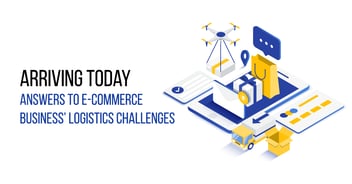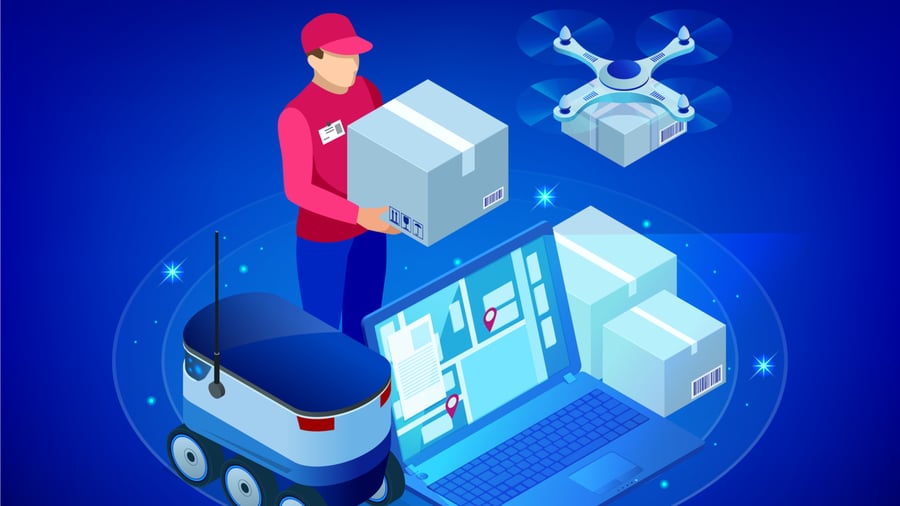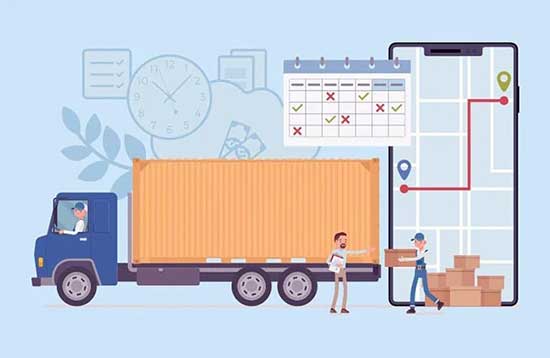
- Home
- Logistics
- Harnessing the power of Artificial Intelligence (AI) & Machine Learning (ML) to transform logistics
Harnessing the power of Artificial Intelligence (AI) & Machine Learning (ML) to transform logistics
Published :

The Elon Musks and Mark Zuckerberg’s of the world are driving the Artificial Intelligence (AI) and Machine Learning (ML) agenda at present. Everything from how we interact with machines (think self-driving cars), to how we interact with each other (think Facebook), is increasingly being defined by how fast technology is teaching systems to behave like humans, and actually do it better. Enterprise applications, while still in the early stages of adopting such intelligence, are beginning to witness how the application of Artificial Intelligence (AI) and Machine Learning (ML) can drive the innovation and transformation strategyof a business.
In the context of the logistics industry, this will spell a game changer. A cross-industry report on Artificial Intelligence (AI) adoption by McKinsey, found that early adopters that have a proactive Artificial Intelligence (AI) strategy in the transportation and the logistics sector enjoy profit margins greater than 5%[1]. So, what does this mean for the systems that move our goods through the global trade network?
Enterprise applications will have to turn into intelligent ones
A company's historical data is a gold mine. As is true of all gold mines, unless you are willing to dig deep enough, all you will have to contend with are rocks and dirt, which are of no use to anyone. Relying on manual processing or even traditional analytics to gain insights hasits limitations and can only take you so far. What enterprise applications need, is the ability to think for themselves and serve information based on the past, without any human intervention.
Traditionally, historical data is used to meet audit requirements or to set the company’s targets for the upcoming financial year. Such enterprise applications can run validation checks on data but they don’t question the users’ activities. Turning data into information is one thing but using the information to drive real-time business decisions is quite another. An ordinary enterprise application is limited in the impact it has on the overall business strategy because it is unable to empower its leaders with critical insights in real-time.
Infusing intelligence into enterprise applications changes, not just how the systems operate, but also how significant the results are that they produce.
Supply Chain / Logistics is filled with complexities and needs a guide
For thriving supply chains, it is mandatory to have a comprehensive logistics network that is well integrated. Achieving this remains a challenge even today, because collaboration between various resources and networks is needed to ensure efficiencies are improved while remaining cost-effective. The added requirement is the ability to meet the pressures associated with speedy deliveries to meet customers’ expectations.
Then there is the compliance angle to think of. Regulations vary across boundaries, which means businesses have to comply to everything from global trade practices to regional guidelines / laws. The larger the supply chain / logistics network, the more complicated, time consuming and expensive it all gets. What is also missing from supply chains is real-time agility that can make optimum use of resources in the face of fluctuating costs and market demands. What happens if a flight connection is missed? Or What if your international shipping agency turns unreliable? And How do your processes change when Brexit finally happens?
It is impossible to plan an alternate option for every scenario. So who lends you a helping hand in such cases? (AI and ML).
Artificial Intelligence (AI) and Machine Learning (ML) are set to change how the logistics industry will look in 2022
According to a DHL Trend Research[2],
"Logistics companies are uniquely positioned to benefit by applying AI in almost all aspects of the supply chain. One of the most underutilised assets in the industry is the high volume of data that supply chains generate on a daily basis. This data is both structured and unstructured, and AI will enable logistics companies to exploit it. In addition, as many logistics companies around the world embrace digital transformation, transitioning away from legacy enterprise resource planning systems to advanced analytics, increased automation, and hardware and software robotics, and mobile computing the next obvious step in the increasingly digital supply chain is to apply AI."
AI-based systems use historical data for future projections, allowing senior management to make smarter business decisions. In a Forbes Insights Research, 65% of senior transportation focused executives believe that logistics, supply chain and transportation processes are in the midst of a radical transformation[3]. In the same report, nearly 2/3rdsof the respondents also anticipated that systems that integrate Artificial Intelligence (AI) and Machine Learning (ML) would result in significant productivity benefits.
It is fair to say that Artificial Intelligence (AI) and Machine Learning (ML) based systems have a very compelling advantage over traditional systems
The real value of Artificial Intelligence (AI) and Machine Learning (ML) lies in combining raw data residing in enterprise applications with human intelligence. Such systems adapt continuously as they learn so the agenda for supply chain / logistics is becoming clearer by the day.
How well prepared for it are you?
What if Enterprise Applications also could learn and serve the Logistics Service Providers with information based on past transactions without being fed with information all the time? Attend webinar to get a sneak peek into the future of ERP systems and experience exciting use cases being built leveraging AI/ ML based algorithms. Register Now
[1] “Artificial Intelligence – The Next Digital Frontier?” McKinsey Global Institute, 2017
[2] “Artificial Intelligence in Logistics” DHL Trend Research, 2018
[3] “Logistics, Supply Chain and Transportation 2023 – Change at Breakneck Speed” Forbes Insights, 2018
Enterprise asset management (EAM) involves the management of mission critical assets of an organization throughout each asset's lifecycle. EAM is used to plan, optimize, execute, and track the needed maintenance activities with the associated priorities, skills, materials, tools, and information. The aim is to optimize the quality and utilization of assets throughout their lifecycle, increase productive uptime and reduce operational costs.
Enterprise asset management (EAM) involves the management of the maintenance of physical assets of an organization throughout each asset's lifecycle. EAM is used to plan, optimize, execute, and track the needed maintenance activities with the associated priorities, skills, materials, tools, and information.
The software helps in effective maintenance of assets through preventive, predictive, shutdown and breakdown maintenance strategies. The system also helps enterprises mitigate equipment risks by enhanced safety standards. The streamlined operations and improved asset performance helps organizations increase their investment effectiveness.
EAM is important because it helps organizations track, assess, manage and optimize asset quality and reliability. Asset intensive Organizations have hundreds, thousands, even millions of assets which needs to be maintained to maximize / optimize life of these assets to increase the return on investment.
The key features of effective EAM are:
Asset Intensive companies under the following Industries :
Contact us for a meeting and schedule a demo
This differs on case to case basis, based on the type of installation and unique industry specific requirements. Contact us for a meeting and schedule a demo.
This differs on case to case basis, based on the type of installation and unique industry specific requirements. Contact us for a meeting and schedule a demo.
Stay Connected, follow us on LinkedIn / Twitter to know more about EAM Software latest trends.

All Rights Reserved. © Copyright 2024. Ramco Systems.